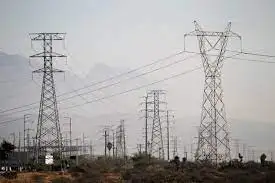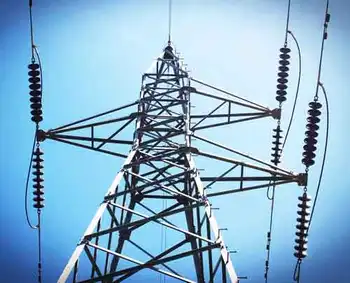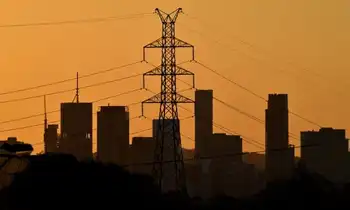Bill would create Wisconsin wind farm rules
By Associated Press
NFPA 70e Training - Arc Flash
Our customized live online or in‑person group training can be delivered to your staff at your location.

- Live Online
- 6 hours Instructor-led
- Group Training Available
Winn and other landowners formed AgWind Energy Partners. They got permission from Trempealeau County to set up survey towers to measure wind speeds, with an eye toward one day building 20 turbines, worth $600 million, that could produce up to 50 megawatts of electricity — enough to power 50,000 homes.
Then the county passed an ordinance. All turbines would have to stand at least a mile from any inhabited building and at least a half-mile from the nearest property line. County officials said the ordinance was designed to mitigate the turbines' effects on people's health. Winn said the new rule killed the project.
"There was not one square foot in the county where you'd be a mile away from everything," Winn said. "That was their way of saying, 'No, we don't want them in the county.'"
Across Wisconsin, smaller-scale wind developers like Winn say super-restrictive local ordinances are suffocating their businesses. Now lawmakers are stepping in with a bill that calls for the three-person Public Service Commission to create statewide rules. The Senate is expected to vote on the measure.
Supporters argue the Democratic-authored legislation will streamline wind farm permits, create jobs and help Wisconsin meet a legislative mandate that 10 percent of the state's power come from renewable sources by 2015.
Opponents consider the measure a power-grab and fear regulators will approve projects to meet the 10 percent renewable mark, ignoring the turbines' effects on neighbors' health and quality of life.
"We heard loud and clear from a lot of our towns over the last year that they didn't trust the PSC," said Rick Stadelman, executive director of the Wisconsin Towns Association, which has registered to lobby against the bill. "We want to participate in developing those standards."
Western states have stronger winds than Wisconsin, but industry experts believe the wind is strong enough in the state's eastern and far west-central sections to produce consistent electricity. But a not-in-my-backyard mentality has made building difficult, developers say.
The turbines are hundreds of feet tall with gigantic blades visible for miles. Critics complain they mar skylines, and produce flickering shadows and annoying sounds that cause health problems and drive down property values.
"I just pity the poor people who have to live by these things," said Erv Selk of Chilton. Selk said he can sometimes hear the turbines at We Energies' Blue Sky Green Field wind farm in northern Fond du Lac County even though he lives a mile and a half away.
Under current state law, the PSC sets standards for wind farms that produce at least 100 megawatts. Local governments control anything less. They aren't supposed to impose restrictions that aren't tied to health or safety.
Developers had 22 proposals for sub-100 megawatt farms pending before local governments as of July 21, according to RENEW Wisconsin, which promotes clean energy. But builders say the locals have caved in to wind opposition groups and crafted requirements that doom their projects.
Emerging Energies of Wisconsin proposed building seven turbines in Manitowoc County in 2003. County officials gave the Hubertus company the green light. A group of citizens sued and a judge ordered the county to apply a revised ordinance with stricter noise limits and setbacks. The same board of adjustments that granted the initial permit had to deny it, leaving the $20 million dollar project in limbo.
"The sound of leaves falling would be too much for the health and safety concerns these people have," said Bill Rakocy, an Emerging Energies founder.
Bob Welch, a lobbyist for the Coalition for Wisconsin Environmental Stewardship, which opposes the bill, said the group fears the PSC will ignore safety data and craft lax site standards to reach the 10 percent renewable mark faster.
"The PSC is in the business of siting energy developments. Now they're in charge of safety. There's a conflict," Welch said.
Steve Rollins, an attorney for Manitowoc County, echoed Trempealeau County officials, saying his county's restrictions are based on months of research.
"I cannot imagine a more intensely local decision than land use," Rollins said. "If the state wants to help the locality, provide expertise and guidelines... rather than trying to simply lay down the law."
At least three other states — Delaware, Illinois and South Dakota — have passed uniform siting standards, according to the National Conference of State Legislatures.
Wisconsin's bill looks like it will pass, too. Democrats control both the state Senate and Assembly and Democratic Gov. Jim Doyle backs the measure. A task force he appointed to study global warming recommended statewide wind farm standards.
The bill doesn't set up any regulations, leaving it up to the PSC to develop them.
Commission spokesman Tim LeMonds insisted the standards will be based on science, noting the legislation calls for at least two public hearings and sets up an advisory panel of wind developers, local government officials, environmentalists and landowners to guide the commission.
He rejected assertions the commission rubber stamps projects. Last year the commission refused Alliant Energy's request to build a $1.3 billion coal-fired power plant in Cassville, LeMonds said.
Meanwhile, AgWind Energy has turned to Buffalo County. Ron Winn said the bill would make life a lot easier.
"(Local officials) just don't want to see (turbines)," Winn said. "And yet they can't turn them down for that, so they have all kinds of other excuses."











